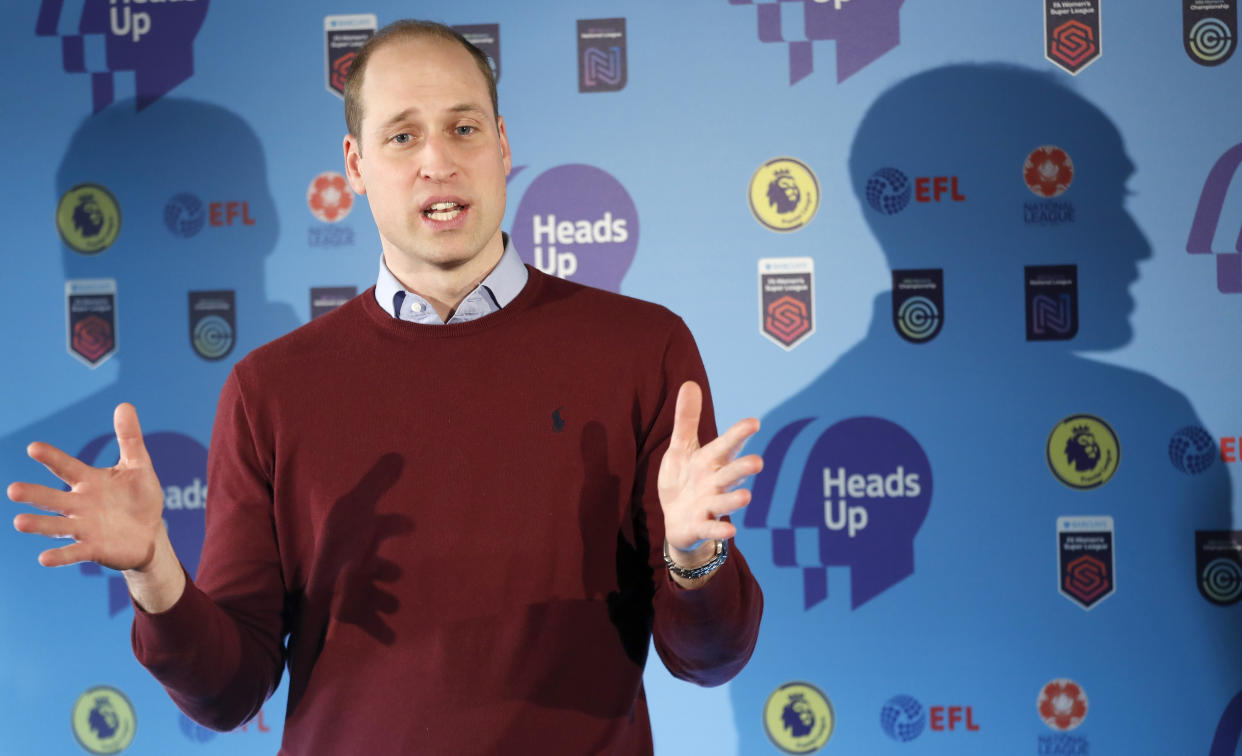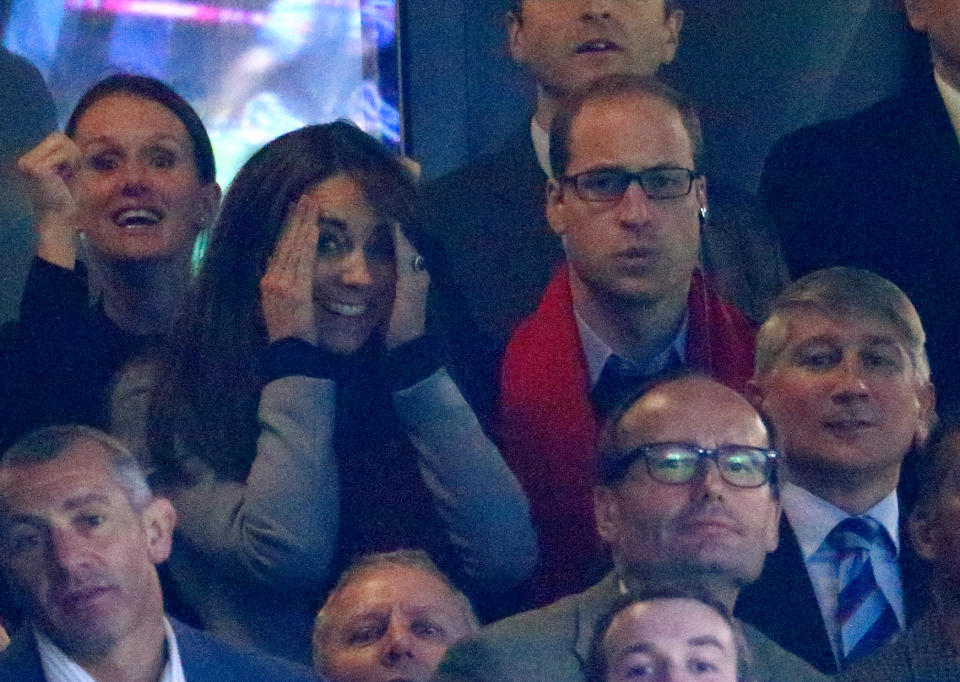Prince William says poor eyesight helped his stage fright - because faces became a blur

Prince William has credited poor eyesight with improving the anxiety he felt before big speeches - because the audience members’ faces became a blur.
William’s comments come in a documentary on mental health which he made with the BBC while he promoting his Heads Up campaign.
The Duke of Cambridge met footballers and football fans across the UK as he encouraged people to speak up about their mental health and break the stigma.
In the documentary, he revealed he thinks the stigma has come from Britain’s reaction to two world wars in which people tried to forget the experience and “get on with life”.
He tells one grassroots footballer, who has anxiety, that he did feel nervous about speeches when he was younger.
Read more: Prince William echoes parents' worries as he says 'children don't understand social distancing'

He adds: “My eyesight started to tail off a little bit as I got older, and I didn’t used to wear contacts when I was working, so when I gave speeches I couldn’t see anyone’s face.
“And it helps, because it’s just a blur of faces and because you can’t see anyone looking at you – I can see enough to read the paper and stuff like that – but I couldn’t actually see the whole room. And actually that really helped with my anxiety.”
The duke, who is an Aston Villa fan, also talks about how football has become more important to him as he has got older.
He said: “You know it’s weird because, I’ve always loved football but I love football more now than I’ve ever loved it before and I don’t know what it is, whether it’s because I’m a parent now and I need football more in my life, I don’t know maybe it is that.”
"It's one of the most amazing moments in life, but also one of the scariest."
The Duke of Cambridge and former footballer Marvin Sordell discuss parenthood as part of 'Football, Prince William and our mental health', a new @BBCOne documentary following the #HeadsUp campaign ⚽ pic.twitter.com/N8XjzPkE5u— The Duke and Duchess of Cambridge (@KensingtonRoyal) May 26, 2020
Read more: Camilla, Duchess of Cornwall, joins star-studded cast led by Thor director for royal acting debut
In the documentary, the prince spoke to players past and present who have experienced people close to them committing suicide at West Bromwich Albion in Birmingham.
He says: “It is one of the biggest killers of young men under 45.
“As pain and grief goes, and I’ve heard this from sadly too many families who have been bereaved by suicide, it is one of the rawest forms of grief because you’re left with so many unanswered questions.
“Could I have done more, should I have done more, why did they do it?”
William went on to say: “Suicide, it’s scary and it’s frightening and it’s real. Men seem to have a real issue with opening up and being able to talk about it.
“If we can have a major impact on lowering suicide rates, that’s a success from this campaign.”
Read more: Prince William says becoming a parent brought back painful memories of Princess Diana's death
William’s Heads Up campaign was an offshoot of the Royal Foundation’s Heads Together mental health work, and sought to encourage football fans to take time before matches or in half time to talk about issues facing them.
Over the weekend, it emerged the royal had spoken about his mother’s death in the documentary too, saying having children brought back painful memories for him.
And Justin Welby, the Archbishop of Canterbury, credited the duke with encouraging him to speak up when he was struggling.
Football, Prince William And Our Mental Health will be broadcast on Thursday at 8.05pm on BBC One.


